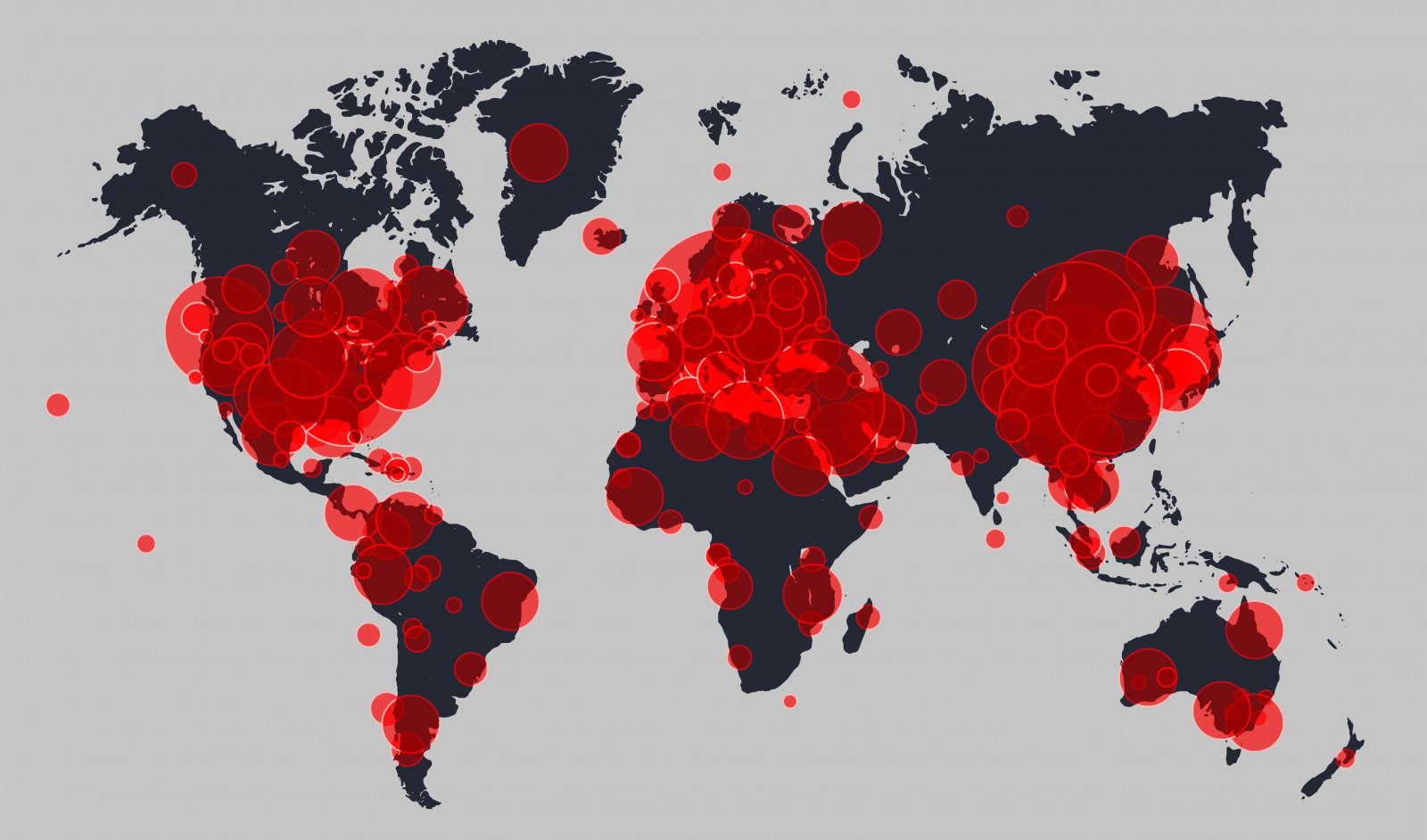
SHARE
ISSUES
The COVID-19 pandemic has created unique challenges for legislators across the world, forcing emergency provisions in parliamentary procedure, innovative techniques for connecting with the citizenry, and legislative actions on urgent relief packages for communities in need.
As a pillar of the democratic system, effective, independent legislatures function to balance power, pass laws and represent the will of the people. To successfully carry out these responsibilities, legislators must engage with those they represent, not only so they can understand public concerns, but also to ensure citizen priorities are adequately represented through meaningful reform. This is especially critical in times of crisis to both assuage public fears and ensure swift delivery of resources to communities in need -- especially those who are underserved or marginalized. Legislatures are also essential lines of defense against executive branch power grabs, including sweeping emergency orders that restrict civil liberties or potential abuses of state resources.
Strong legislatures bolster the delivery of democracy, which is made more crucial during a crisis. In response to COVID-19, legislatures across the world have worked to adapt legislative business to remain connected to one another and their constituents.
Legislatures in Albania, Colombia, Brazil, and the Maldives have adjusted their parliamentary rules of procedure to work remotely and convene virtually. Members of Parliament in France, Germany, Norway, and Croatia are holding parliamentary sessions, but requiring limited numbers of MPs in the room to abide by social distancing recommendations. Legislators in Armenia, Guatemala, Indonesia, and Kosovo are connecting with constituents and sharing updates on COVID-19 through Twitter and Facebook. In Mexico, the Plural Group for Substantive Equality - a women’s caucus - has organized virtual meetings and issued a public statement calling for the application of federal and local resources and services to support and protect women and girls, as they are uniquely and disproportionately affected by the pandemic. While debate is ongoing about the security risks to online voting, such as hacking and manipulation vulnerabilities, several legislatures have either already instituted measures that permit voting virtually, or are considering the possibility of doing so.
In response to the pandemic, parliaments across the world have also deployed resources, temporarily relinquished financial obligations for businesses and/or individuals, and bolstered social and welfare services to respond:
-
In Afghanistan, the government has pledged $25 million to cover expenses related to the pandemic. Other fiscal response measures are being considered as the situation progresses.
-
In Albania, the government amended the 2020 budget in order to allocate 1.3% of the GDP to a package of economic support measures that support small businesses/self employed, fund the health and defense sectors, increase unemployment and social assistance benefits.
-
In Kenya, the government has designated funds for health services and earmarked funds for expediting payments of existing obligations to maintain cash flow for businesses during the crisis.
-
In Kyrgyzstan, the Ministry of Health has provided support, 38.6 million KGS of which has been diverted to pay medical professionals on top of their normal salary. Additionally, the parliament has redirected funds from the salaries of members to fund the fight against COVID-19.
- In Tunisia, the government is enacting a 2.5 billion dinar (about $850 million USD) emergency plan that includes a postponement of some taxes and social payments, tax reschedulements, and an increase in the budget's health allocation and temporary unemployment benefits due to COVID-19. The European Union has also donated 250 million Euro to support the country during the crisis.
NDI programs in democratic governance enhance legislative capacity by strengthening parliamentary communications, oversight, and inclusive rules of procedure; and by working with citizens to hold their representatives accountable. The Institute’s programs also encourage a gender-sensitive approach to legislating, as marginalized communities -- especially women -- are disproportionately impacted during crises.
It is critical that legislators continue to make efforts to connect with their constituents under the COVID-19 context -- especially through accessible means where possible -- so that legislators remain aware of constituent and community needs, and they, in turn, have means to voice concerns and priorities.
That is why NDI remains committed to supporting legislatures during COVID-19, from conducting virtual trainings with in-country partners on issues from managing crisis communications, to working with citizen groups to understand methods for government response during crises. In Jordan, NDI is organizing online public consultation meetings among Members of the Parliamentary Joint Committee and stakeholders to discuss a Local Administration Law, which is aimed at expanding citizen engagement in public service delivery efforts across the country. In Armenia, NDI is working with members of parliament to organize virtual town halls with their constituents. In Mexico, NDI has transitioned to virtual sessions with the Chamber of Deputies International Affairs Unit to support the unit’s strategic planning process. The House Democracy Partnership is updating U.S. members of Congress on COVID-19 impacts in its partner countries, and working to support virtual guidance between parliamentary peers across borders where possible.
As COVID-19 continues to place new and evolving demands on governments, legislatures are uniquely befitted to respond to both the short and longer-term needs of the public, share information transparently and across platforms, and hold the executive to account in the mobilization of programs and services. In the coming weeks and months, as nations continue to adapt to the impacts of COVID-19, NDI remains ready to support the response capacity of legislatures around the globe.
Authors: Frieda L. Arenos is a Senior Program Manager with the Governance team at the National Democratic Institute and Emma Yardley is a Senior Program Officer with the Governance team at the National Democratic Institute.


